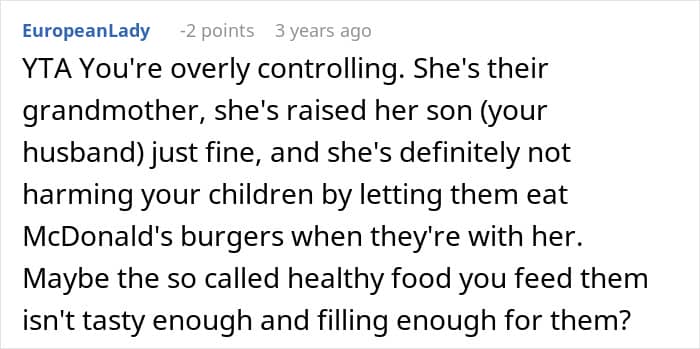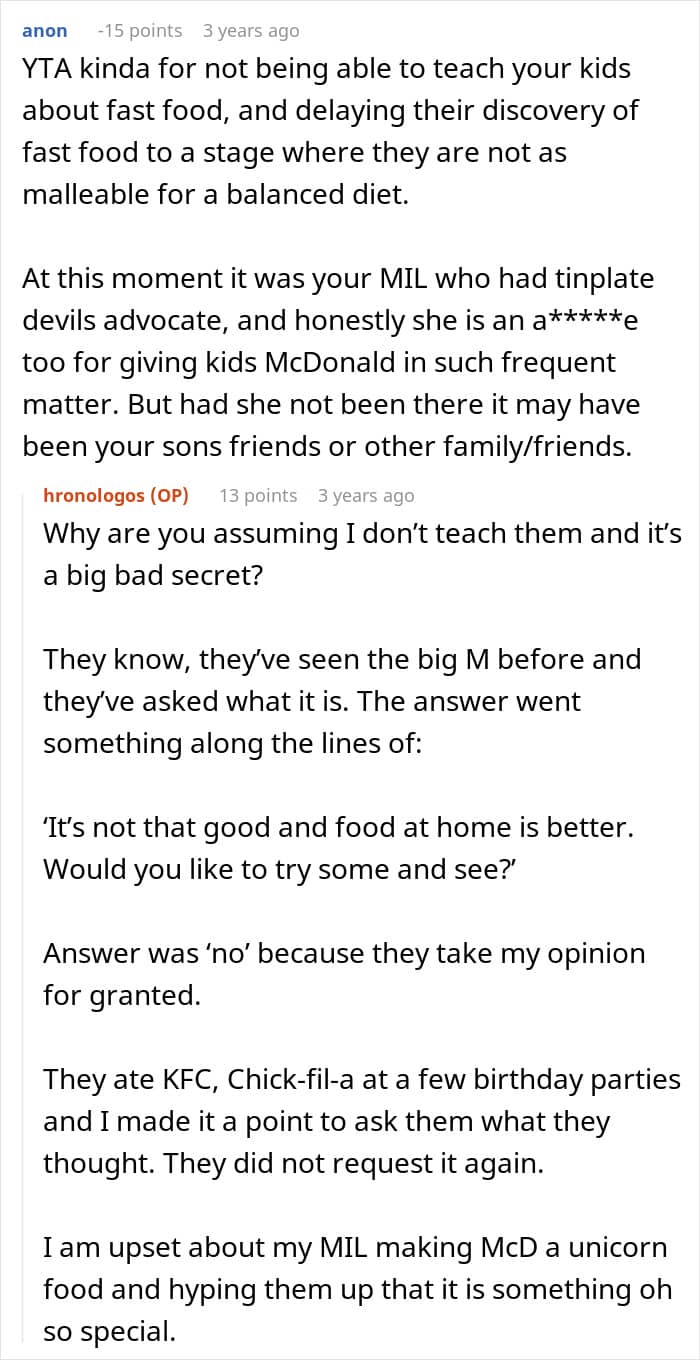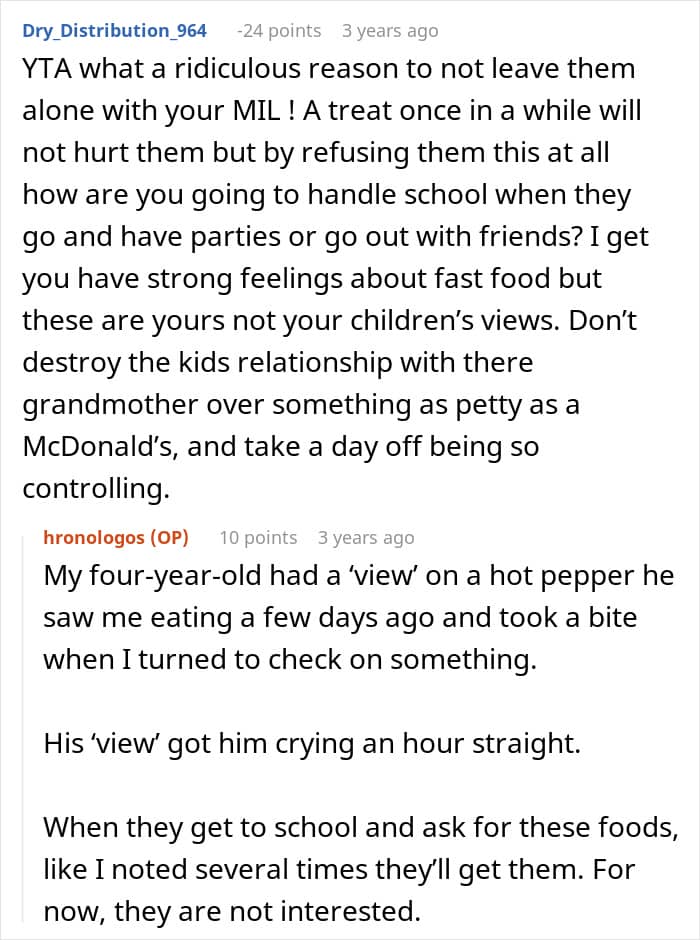We all try to make healthier food choices, but when it comes to kids’ diets, the stakes feel even higher. Most parents do their best to provide their children with the most beneficial diet they can so they grow up healthy and happy. However, with so many temptations around, maintaining kids’ healthy eating habits can get quite challenging.
For this family, the source of temptation was the grandma, who, against the parents’ wishes, fed her grandchildren all types of junk food. After finding out what she did, they nicely asked her to stop, but she didn’t, and she had to face the consequences.
Scroll down to find the full story and conversation with certified registered dietitian nutritionist Maura Fowler, pediatric registered dietitian Danielle Zold, and pediatric dietitian Arielle Dani Lebovitz, who kindly agreed to talk with us more about feeding kids fast food.
RELATED:With so many temptations around, it can be a challenge to maintain healthy children’s diet
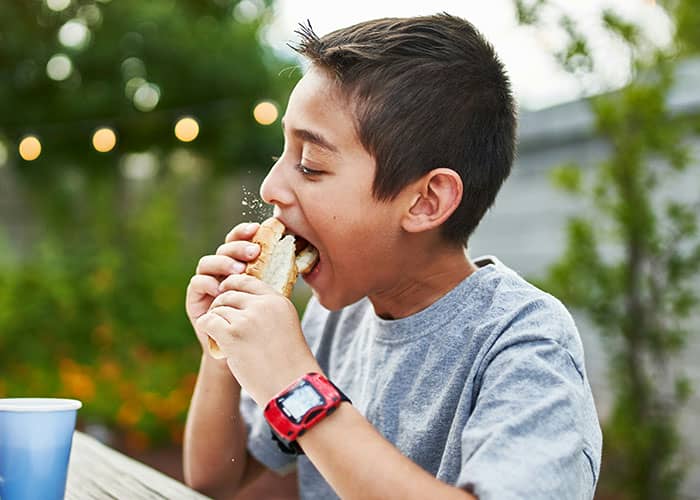
For this family, the temptation was the grandma who fed the kids junk food against parents’ wishes and caused quite the drama
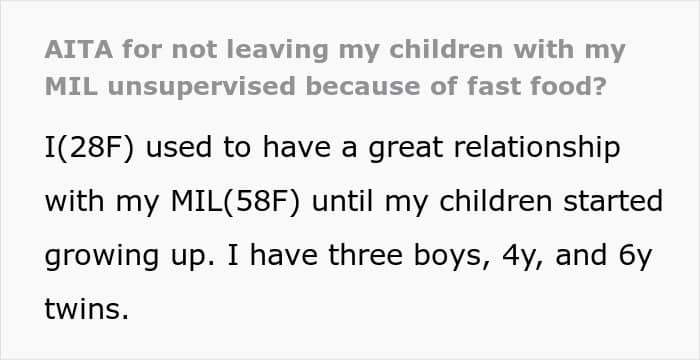
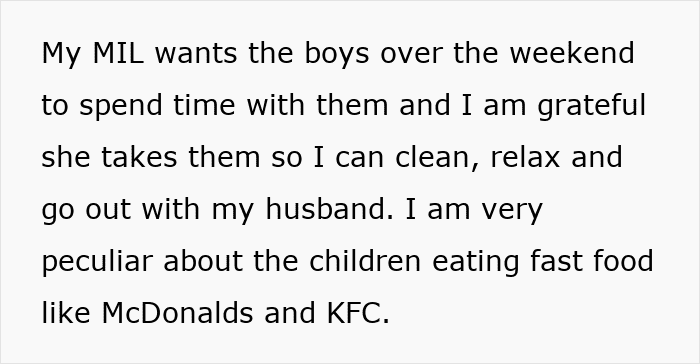
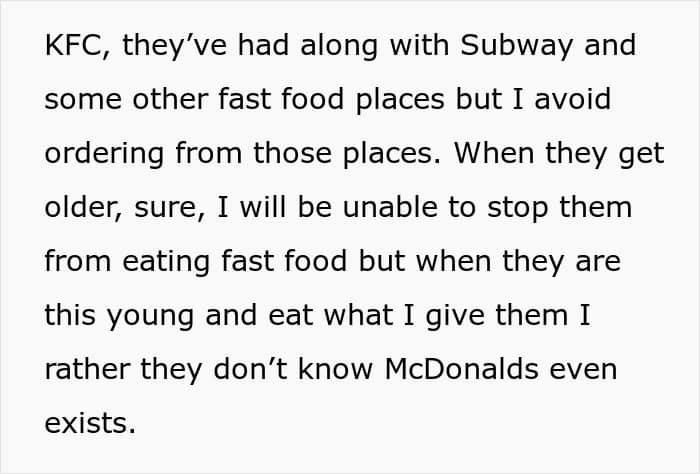



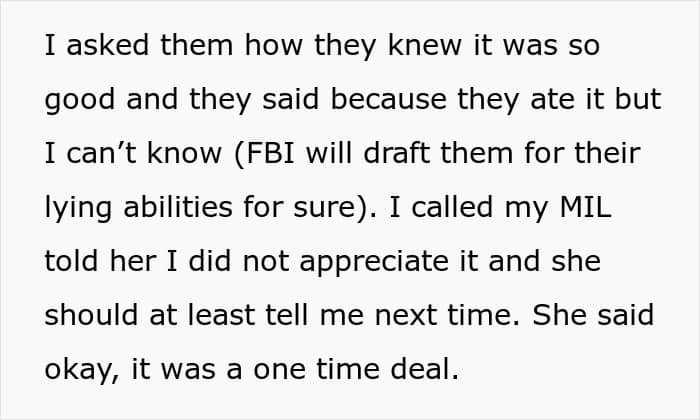
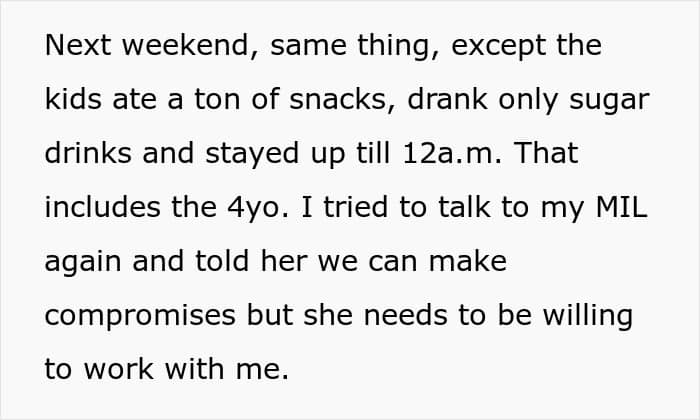



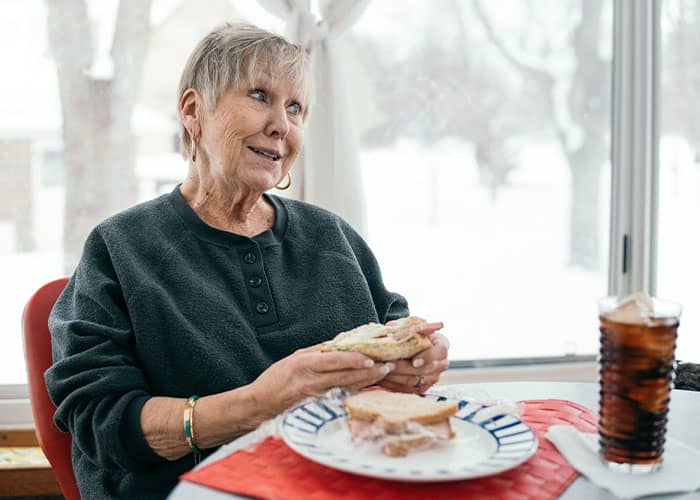





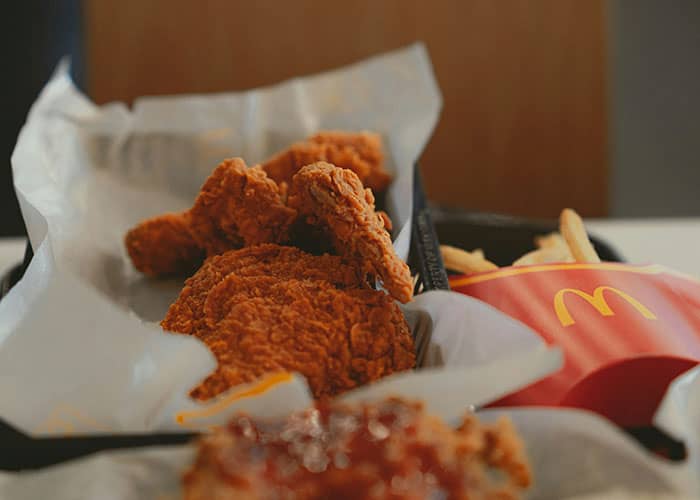



Regular consumption of takeout or junk food can negatively impact children’s health
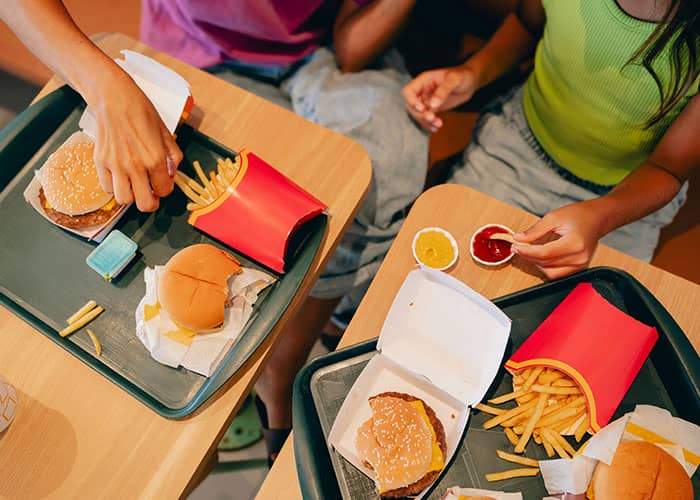
Popping a frozen pizza for a quick dinner or having McDonald’s to celebrate an occasion once in a while won’t hurt anyone. However, it shouldn’t become an everyday thing.
“Nutrition plays a foundational role in a child’s growth, brain development, and motor skills. Occasional fast food is perfectly fine when balanced with an overall nutritious diet. In fact, allowing kids to enjoy these foods in moderation can help reduce the “forbidden fruit” effect that may drive overconsumption later. A healthy relationship with food includes flexibility and accessibility (not perfection),” explains registered dietitian Danielle Zold.
Sadly,the reality is that convenient and highly processed meals dominate the diets of American kids and teens. That’s because most adults around them aren’t concerned enough about their eating habits, doing them a huge disservice to their health and future.Since junk and fast food are full of fat and additives like sugar, salt, coloring, flavorings, and emulsifiers and lack beneficial nutrients, they can have quite a negative effect on children’s health.
“Working in a children’s hospital, I unfortunately see the onset of new diabetes cases often. If it’s not related to genetics, it’s often due to the diet they have. It can be tricky for parents when their child is picky to navigate, ensuring their child has a well-rounded diet, but it’s important that parents take steps to offer food therapy or continue offering foods that their children are against,” says certified registered dietitian nutritionist Maura Fowler.
“It’s also important to note that it may take up to 15 times for a child to accept a new food. If not, it could possibly lead their children to poor health outcomes in their future, such as diabetes, obesity, or heart disease.”
Grandparents are famously known to overindulge children

All of this isn’t to scare, but to say that children’s nutrition should be taken more seriously.
“Nutrition matters—but not in the rigid, all-or-nothing way many of us grew up with. What kids eat consistently over time matters more than any single food or meal. Fast food isn’t the villain. It’s the overall pattern of eating that shapes long-term health, not the occasional burger and fries,” explains pediatric dietitian Arielle Dani Lebovitz.
It’s clear that parents are the ones mainly responsible for their children’s nutrition, but they can’t always be there to ensure they eat healthily, especially when others are taking care of them. Grandparents, in particular, are famously known to overindulge children, which can be worrisome to some parents. And when grandparents disregard parental feeding practices, tension or conflict can arise.
In cases where this doesn’t happen too often, there’s really nothing to worry about. But if kids spend an extended amount of time with their grandparents, it can develop into a problem, one that is becoming more frequent as the caregiving role of grandparents is increasing.
“A treat here and there is ok, but if this child spends a lot of time with their grandparents, then a conversation would be ideal,” agrees Fowler.
Experts advise on how to approach the junk food talk with grandparents
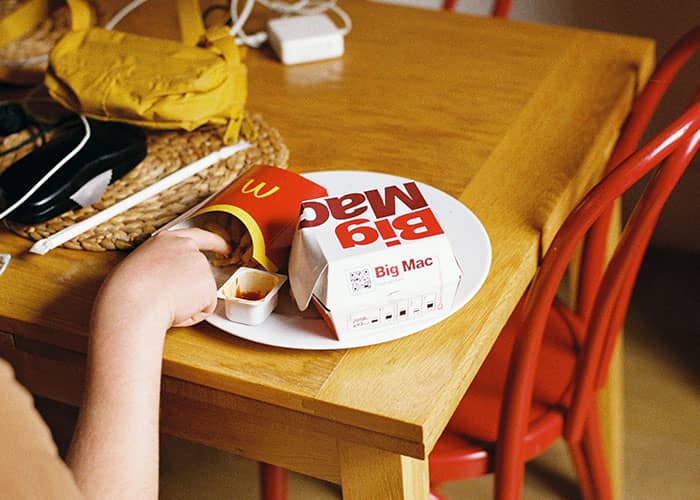
“It’s really common for grandparents to show love through food—but when it’s done in secret, it can unintentionally undermine trust,” says Lebovitz. “I always encourage parents to lead with connection, not conflict. Start a conversation from shared values:
‘I know you love the kids so much and you want to make your time with them special. Can we keep food choices and communication open so the kids don’t feel the need to sneak or feel guilty? If you want to offer candy or take them to get fast food, let’s plan for it.’”
According to Lebovitz, approaching the tricky conversation this way keeps everyone on the same team. “Kids still get to enjoy, grandparents stay part of the fun, and parents can uphold their family food values while making sure kids’ nutrition needs are met—all while building body trust and keeping guilt off the plate.”
Other quick tips experts provide that can help set boundaries with overindulging grandparents include:
Frame the conversation around shared care, not control.Use inclusive language like “Can we…” or “Let’s…” to avoid defensiveness.Focus on food positivity—the issue isn’t the dessert, it’s the secrecy.Offer some healthier types of treats to provide.Try setting a family guideline like “one treat per day,” and let grandparents be the ones to give it.The mom provided more information in the comments
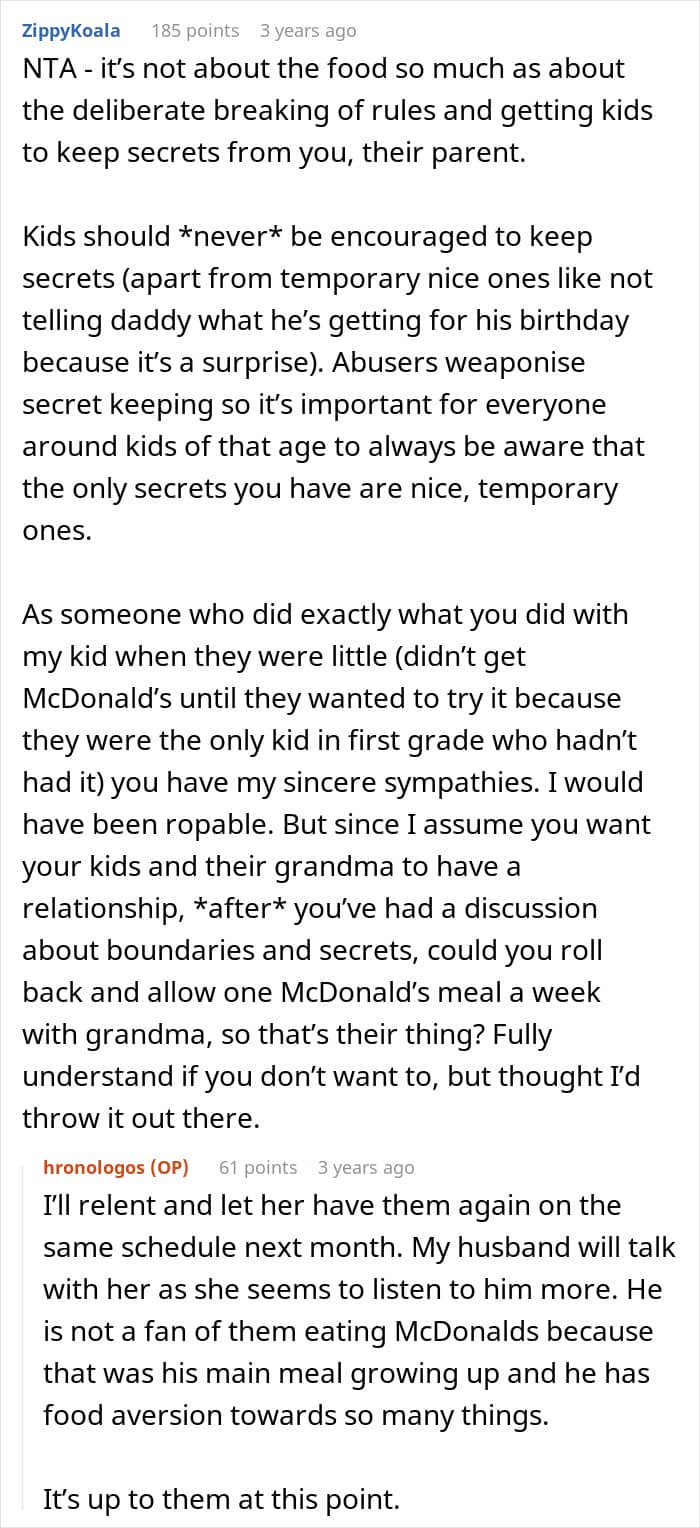
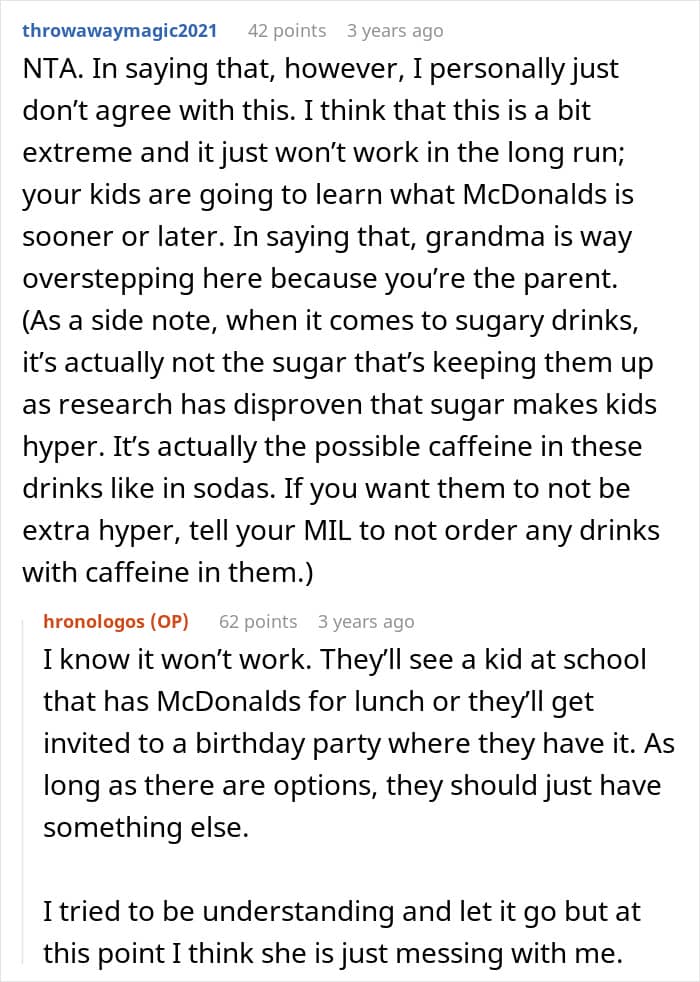
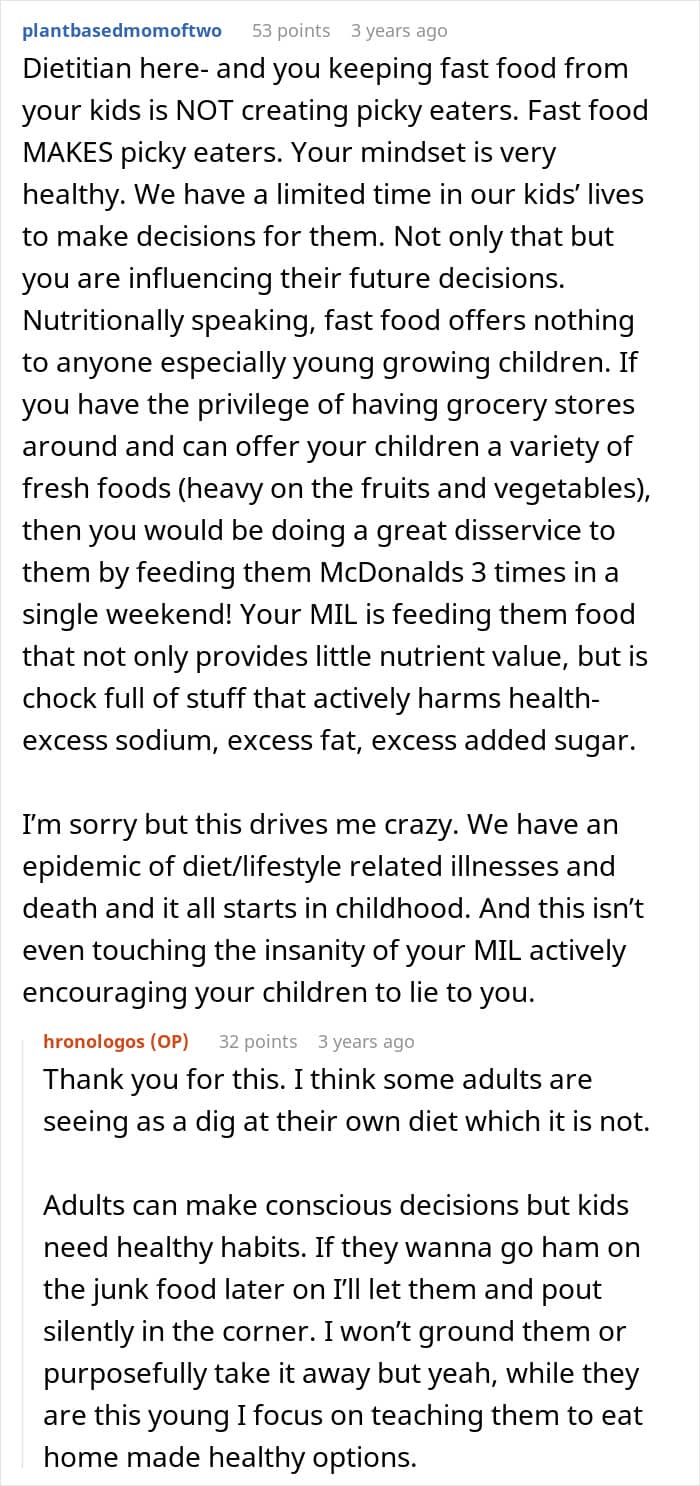
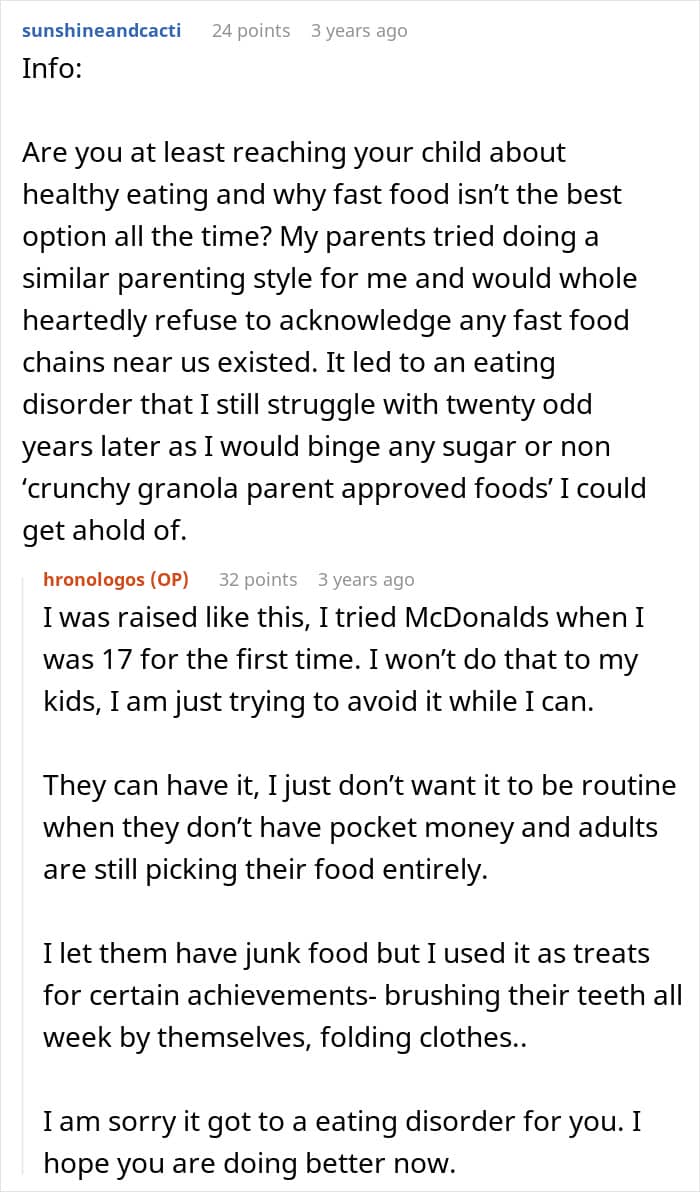
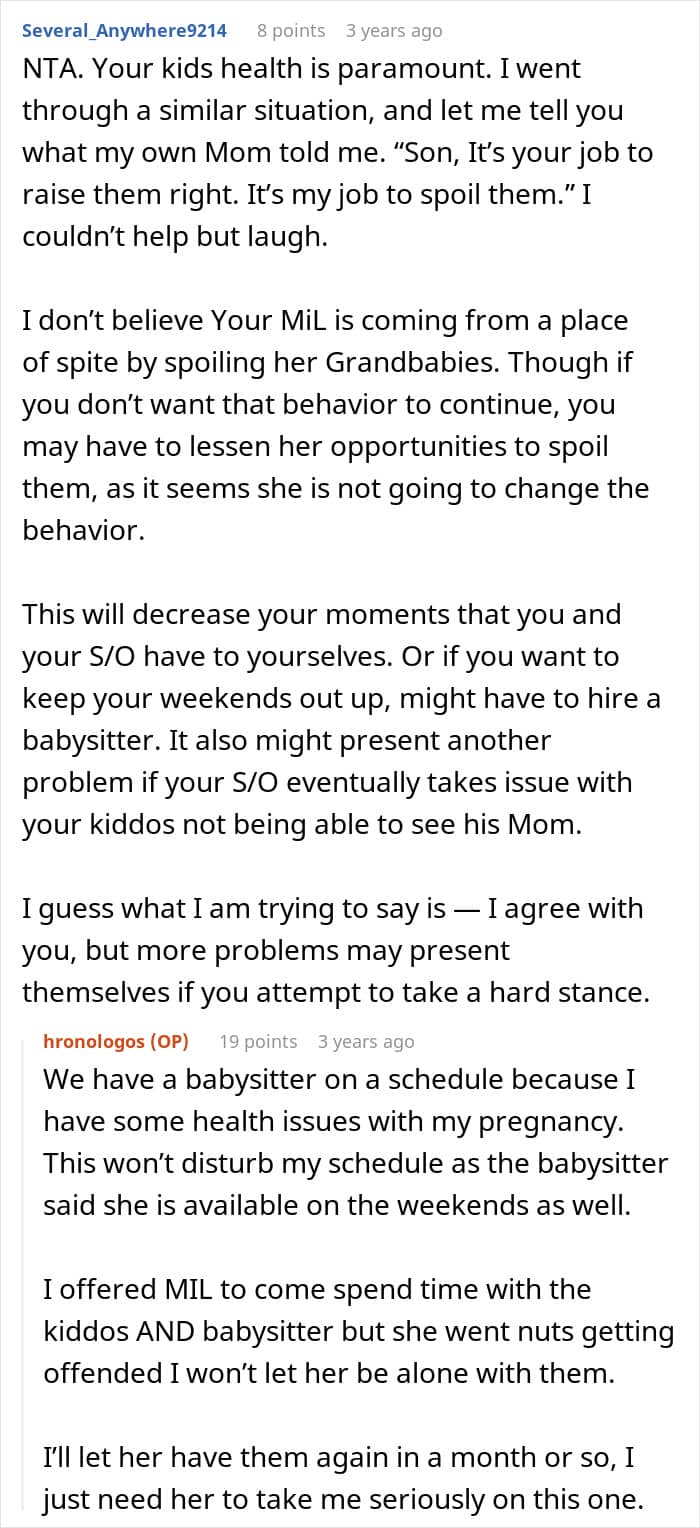
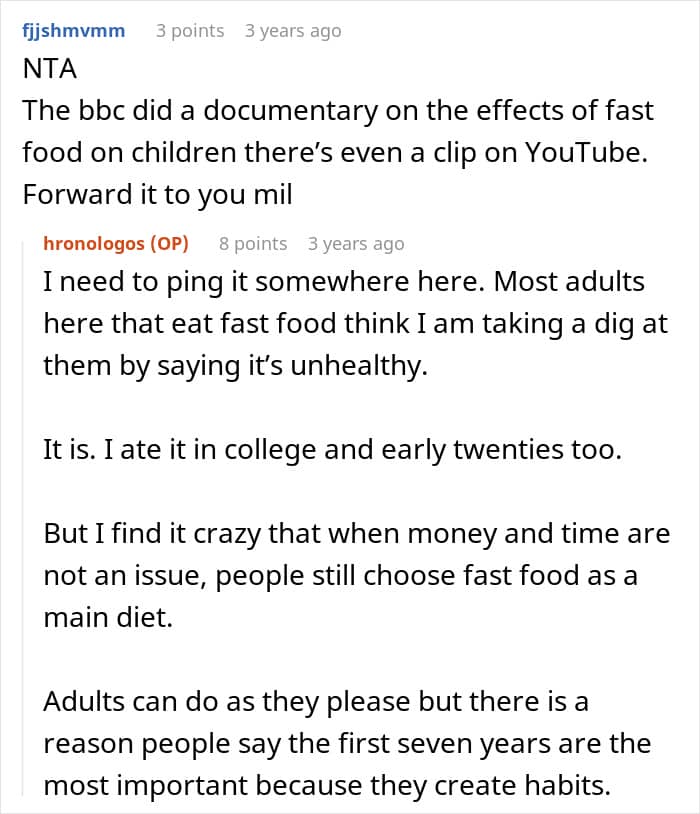
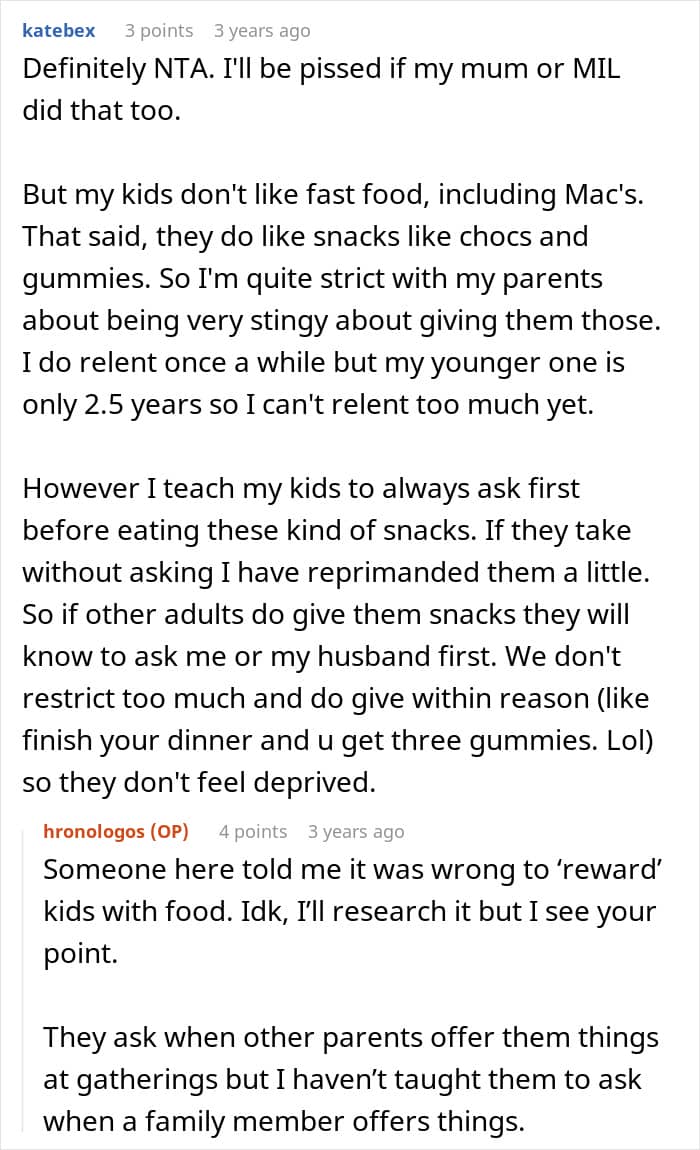
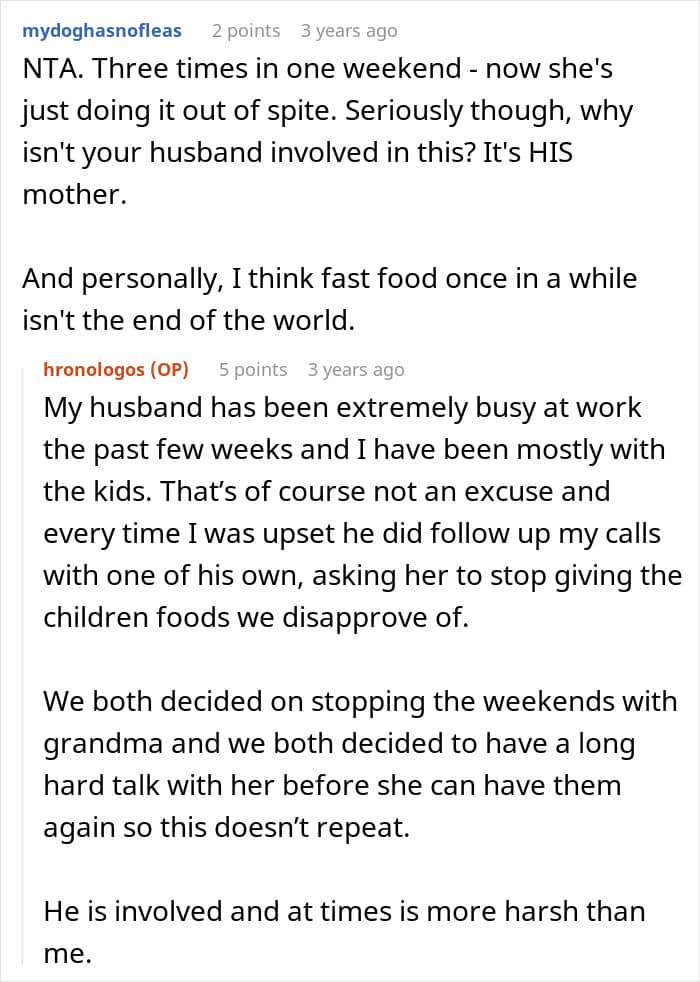
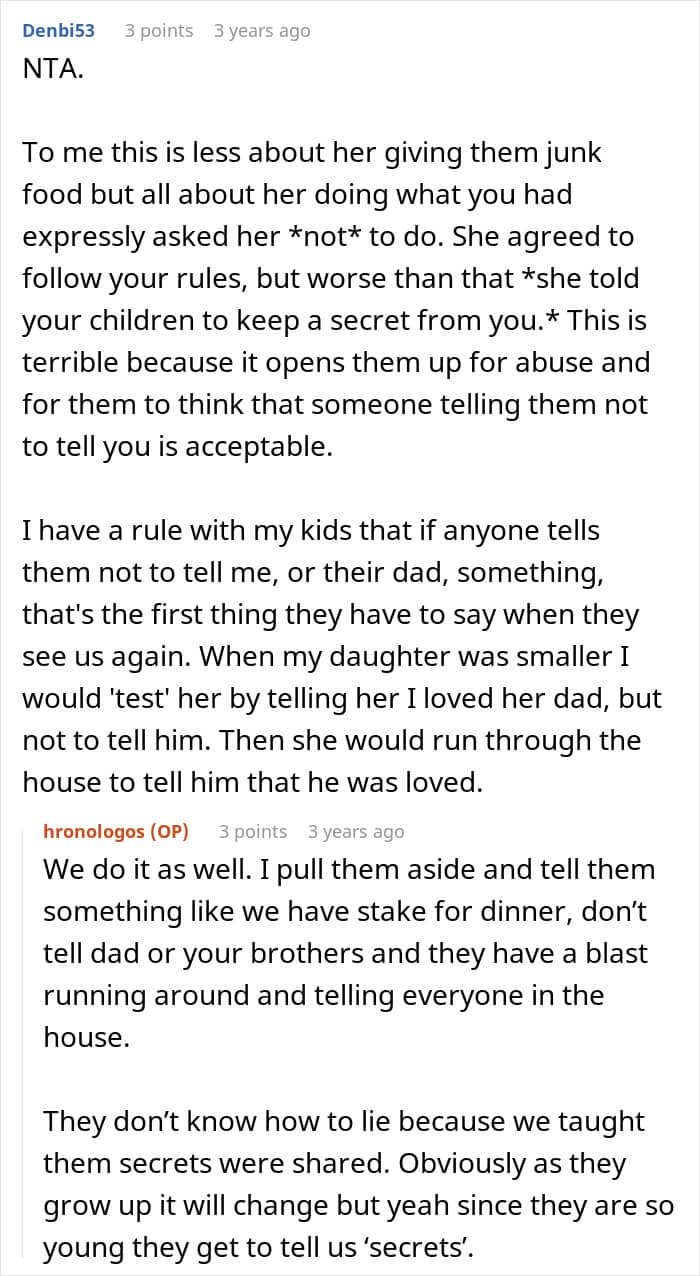
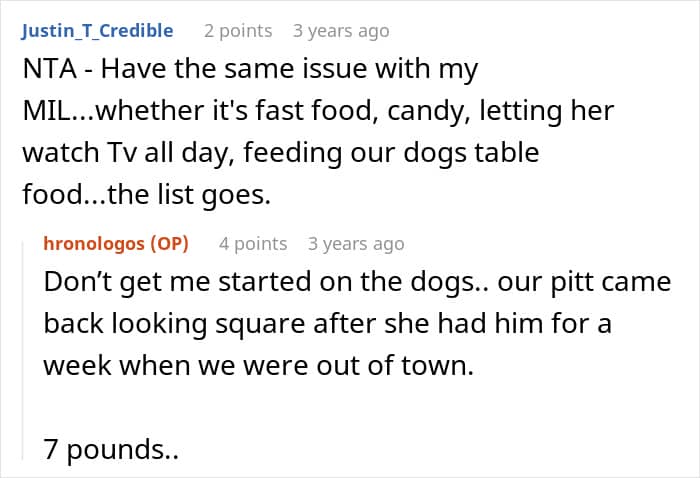
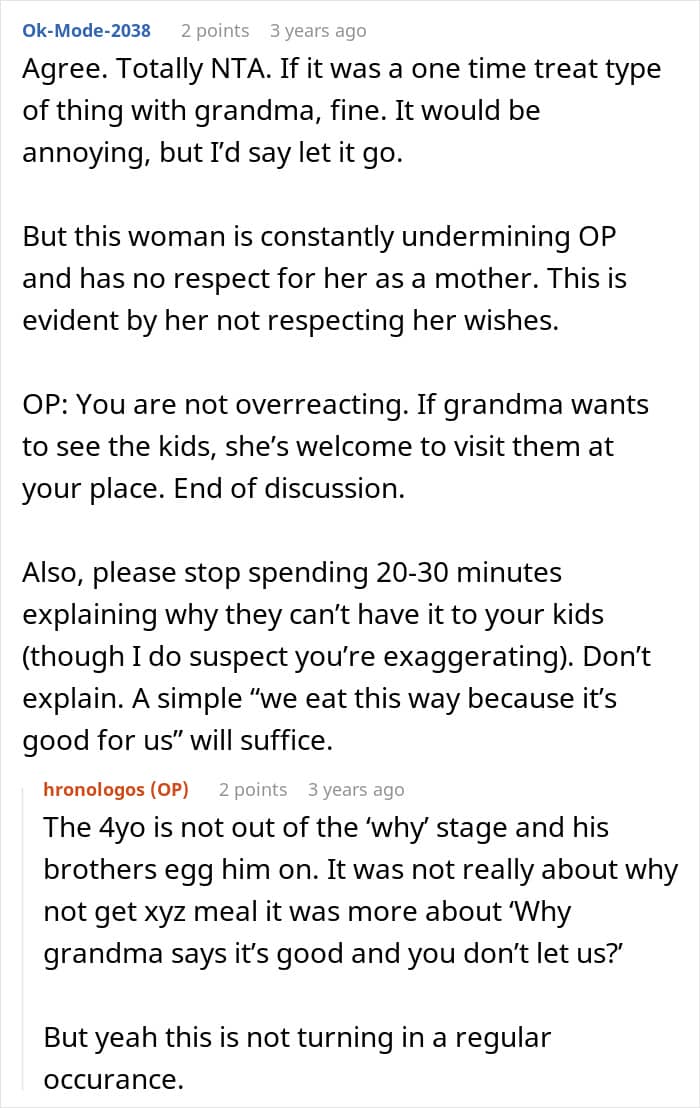

The readers were truly divided, with some saying she’s in the wrong here
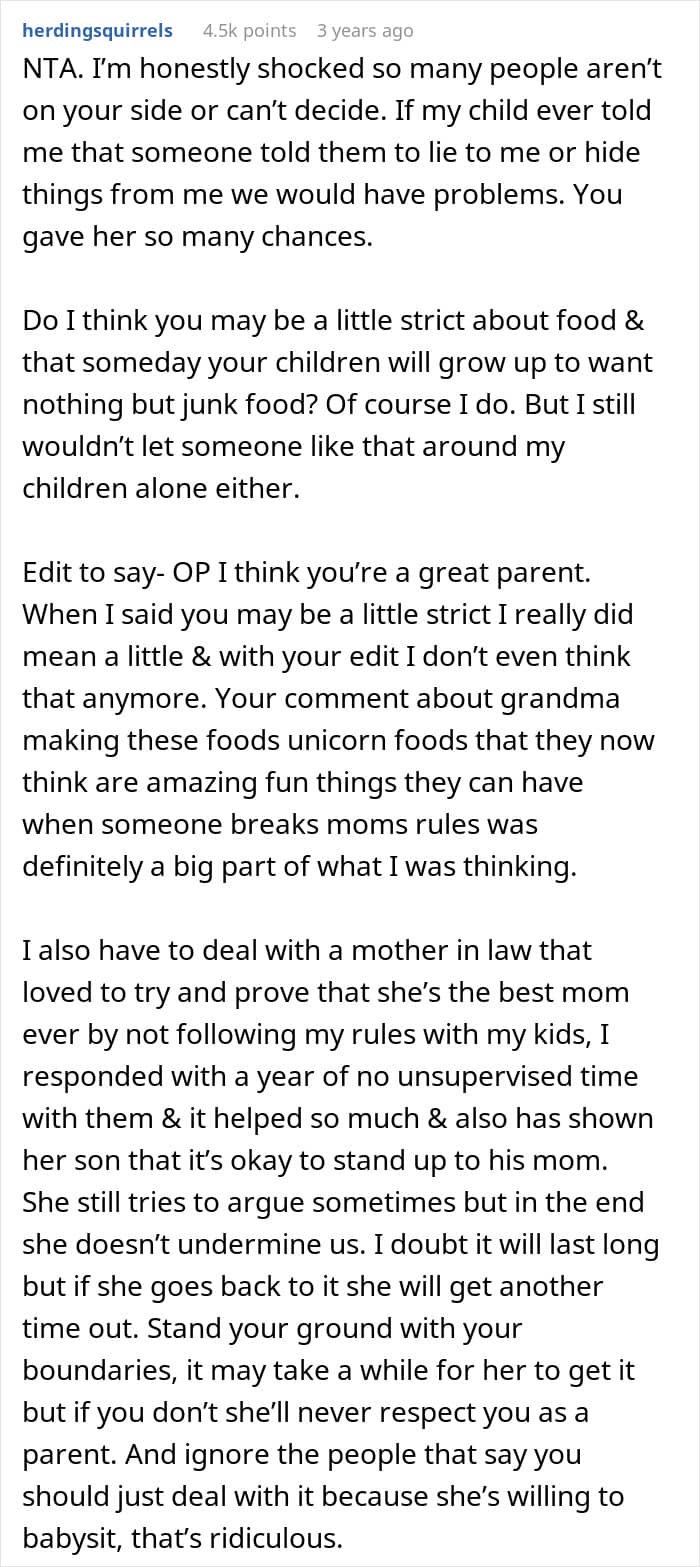

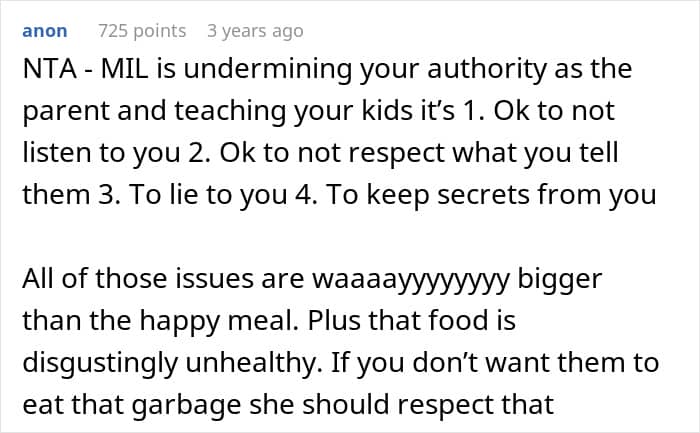



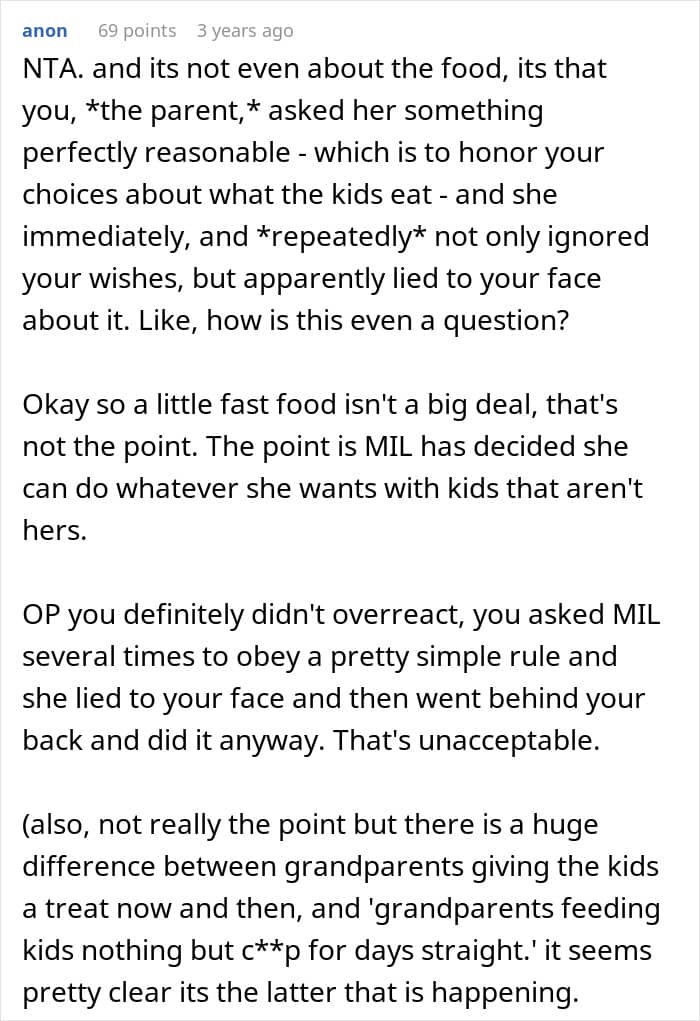

While others thought she was too controlling


